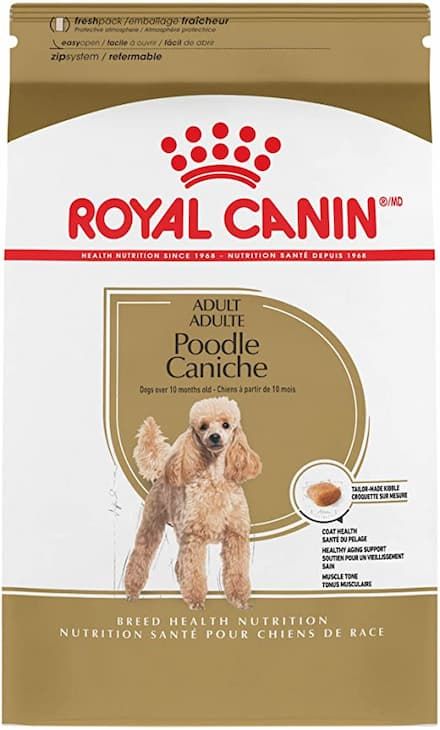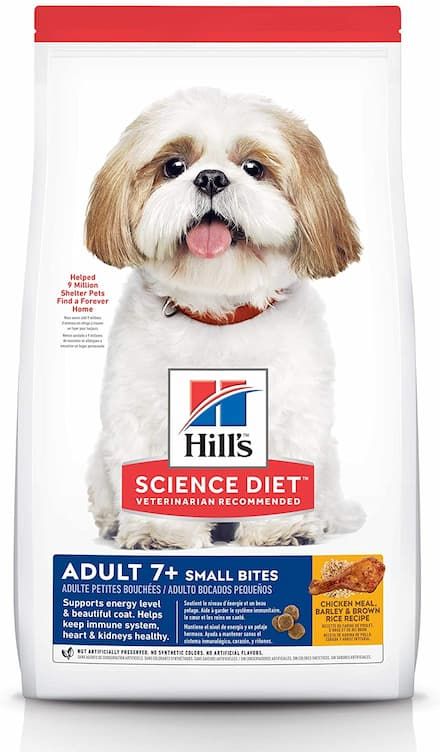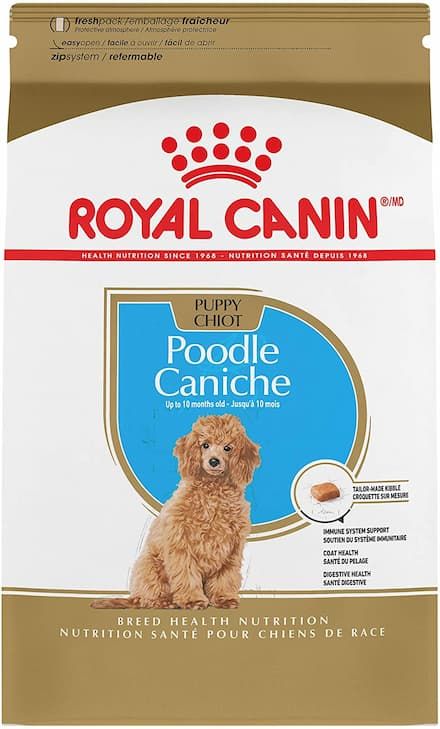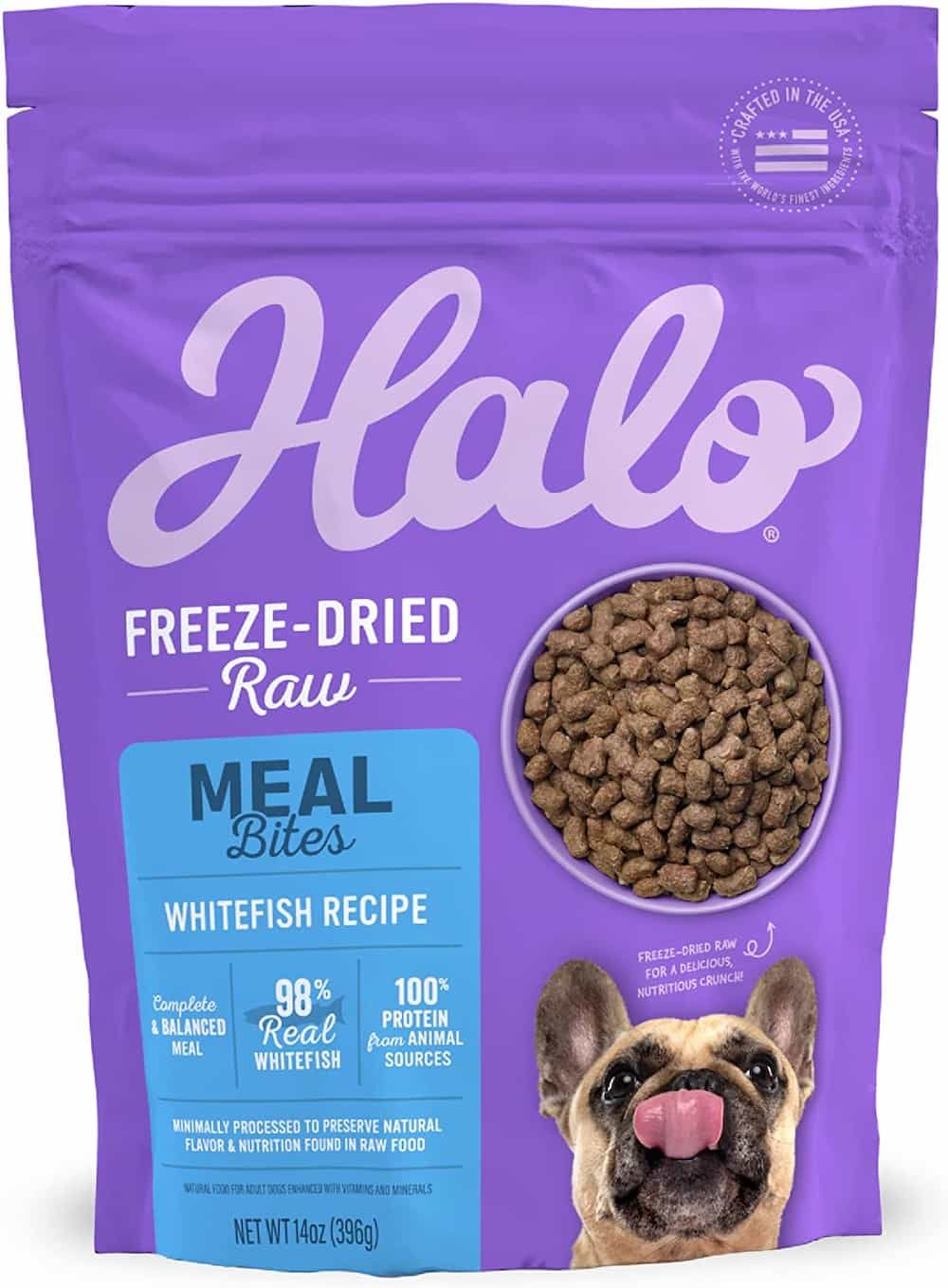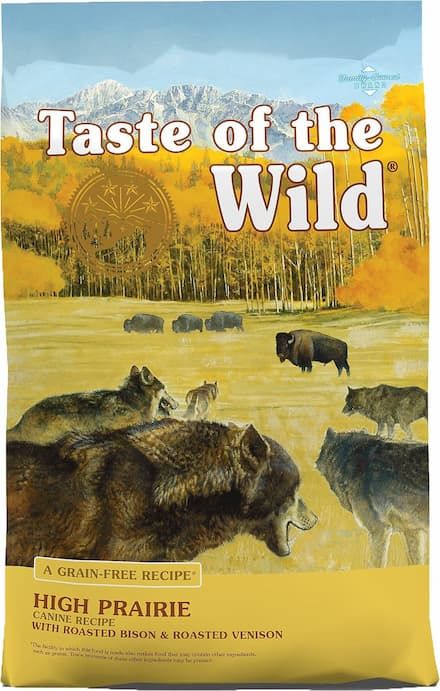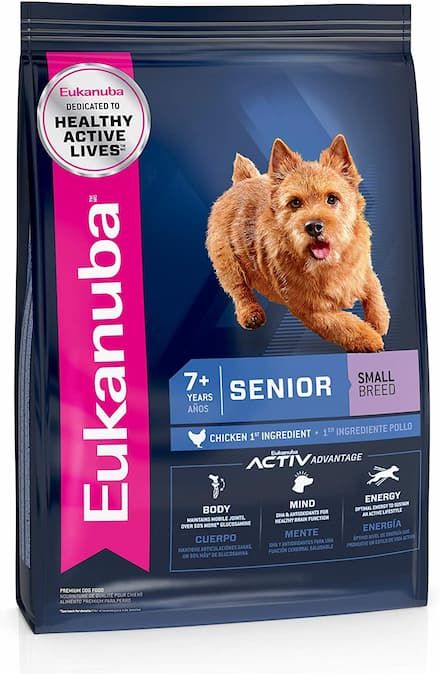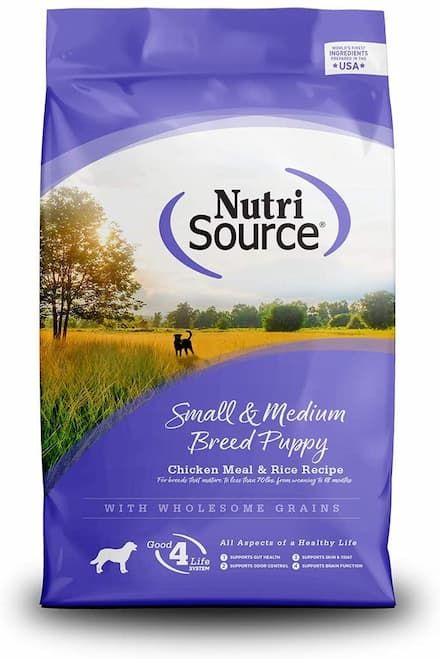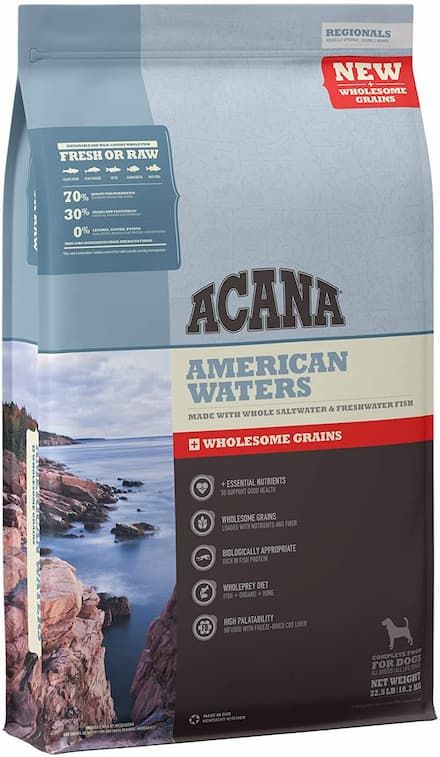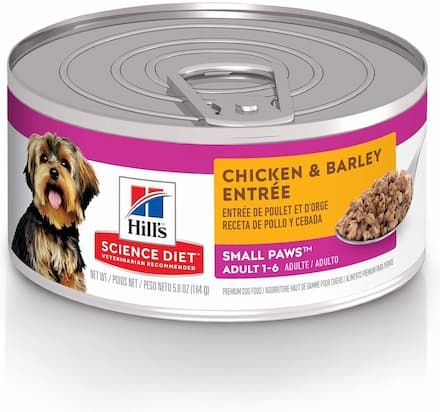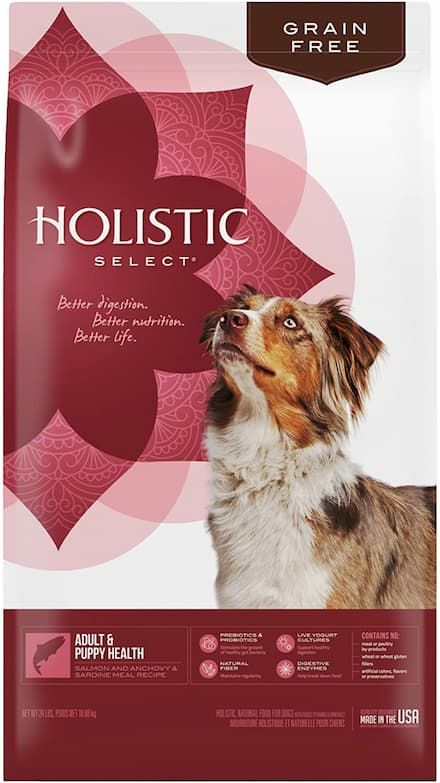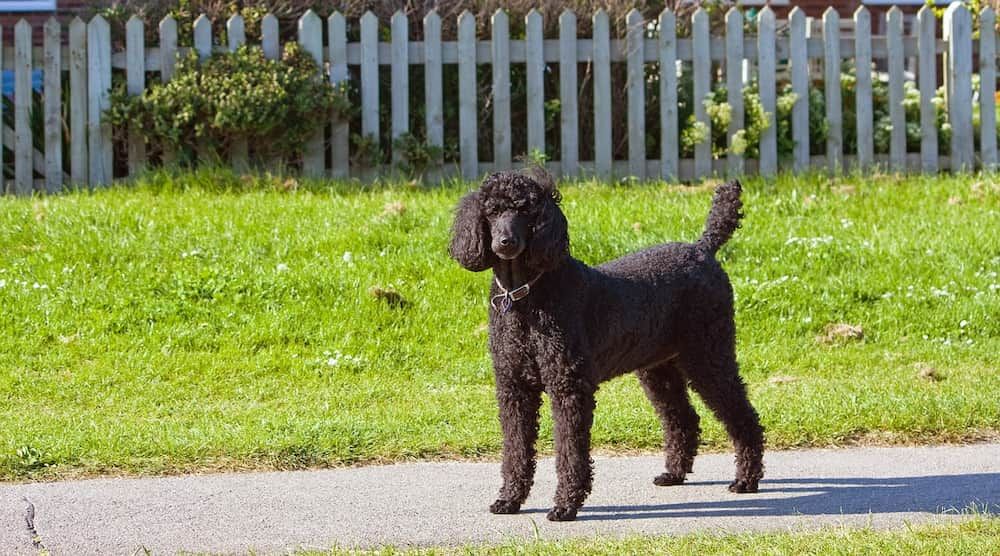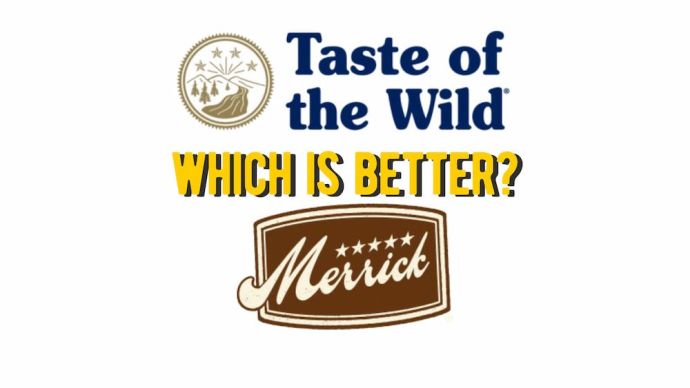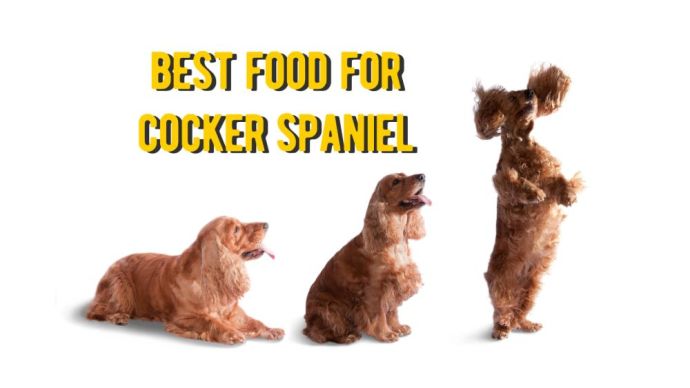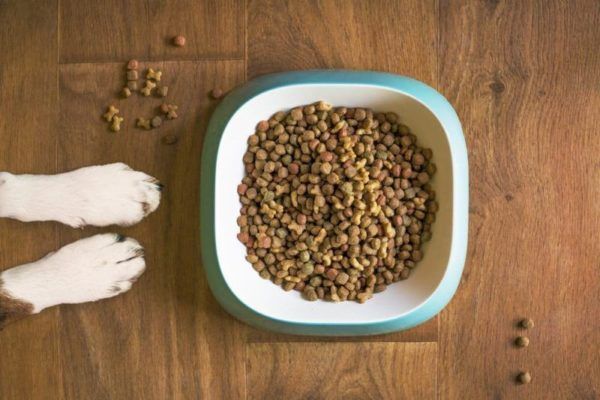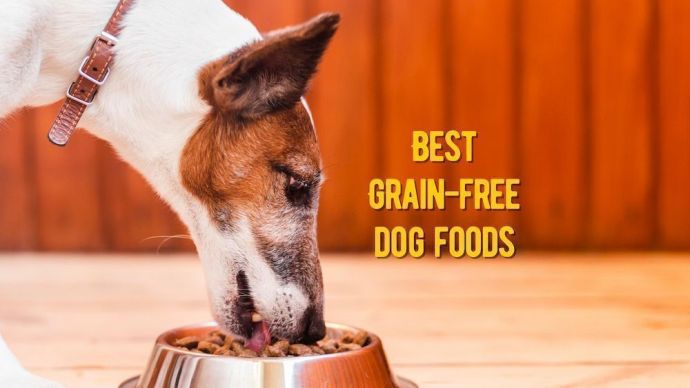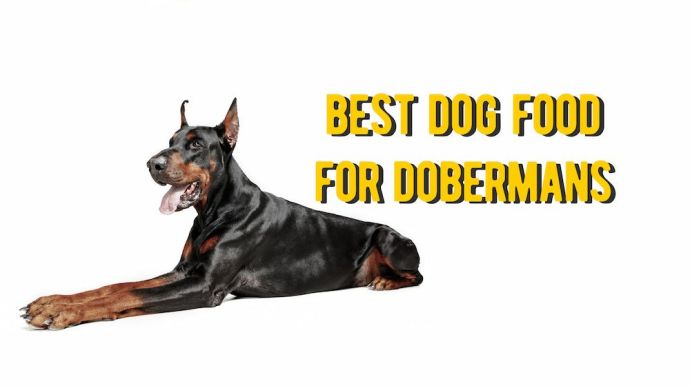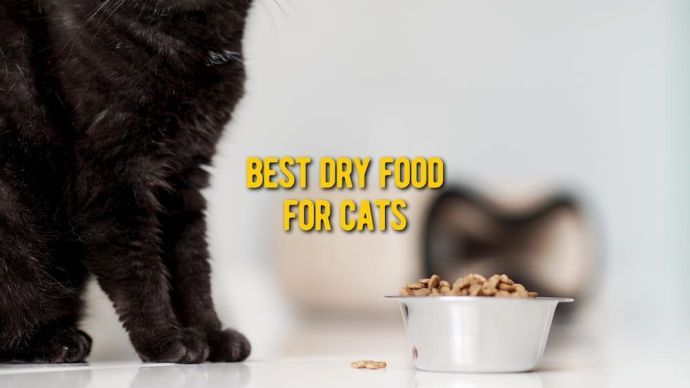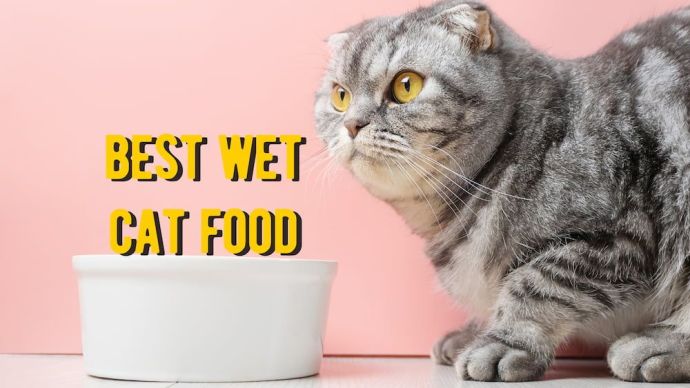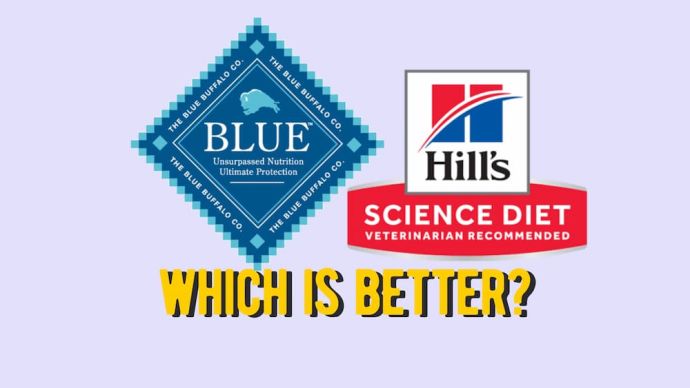The 10 Best Dog Food for Poodles (Vet-Approved Review)
Written by:
Author: Vicki Smirnova
Vicki Smirnova is a professional writer and editor who adores animals and helps readers get along well with their pets. She has been working in digital media for more than 5 years and has great experience writing content about lifestyle, including pets. Vicki specializes in dog health and nutrition, cat feeding, dog training. She is an aquarium lover and is passionate to write about fish care at home. Also, Vicki headed several websites and worked as a news editor.
View all 245 articlesLearn about our editorial process and veterinary review board.
Reviewed by:
Veterinary review
by Dr. Linda Simon
Dr. Linda Simon is a veterinary surgeon working with seven years of experience. She is a fellow of the British Veterinary Association and specializing in animal medicine. Also, she has been the Woman magazine resident vet for the past two years and writes a regular column for them, focusing on pets and their health.
View all 30 articlesLearn about our veterinary review board
Viewed: 39913
Updated on: 03/21/2023
The poodle is a utility breed of dog characterized by its intellect, strong muscles, and beautiful fur. The breed’s name comes from the German word pudel — to splash in the water. In French, this breed is called caniche from the word can (duck). The dogs were (and still are!) excellent hunters of ducks and other waterfowl.
Poodles have a wonderful character. They often come at the top of the list when polling the most intelligent dog breeds. Dogs of this breed tend to be very loyal and make wonderful training partners. As with other breeds, training from a young age is fundamental. Thankfully, given their responsiveness and willingness to please, even a novice dog breeder should be able to get the most out of their poodle.
If you desire a dog that loves children, then a poodle is the perfect candidate. These dogs, when well socialized, can usually tolerate even the most inquisitive of kids. On top of this, most poodles get along well with other animals.
Poodles are very active; they need daily walks. Without regular exercise, most dogs will become bored and frustrated and may develop negative behaviors. Chewing on wires, incessant barking, digging in the garden and other vices may all occur due to the surplus energy they have.
When thinking about a poodle, be prepared for long and active walks.
For example, the miniature poodle needs 3 — 4 walks a day for about 30 — 40 minutes. These walks should be spread evenly throughout the day and it is best to walk a variety of routes and to let your pooch have a good sniff where possible.
One big advantage of a poodle is its low maintenance coat. To keep your poodle looking its best, it is advised to groom them regularly and to brush them at home daily. For them to look their most elegant, a trip to a professional groomer is recommended.
All three varieties of the poodle (Standard, Miniature, and Toy) will have an elongated muzzle and drooping ears. Their eye color is black or dark brown. Their nose should be black and any light pigmentation is considered undesirable by breeders.
Experts recommend that you carefully take care of your pet’s teeth — this breed is well known for developing diseases of the oral cavity: particularly gingivitis and stomatitis. Due to the shape of their mouth, they are prone to plaque build-up over the years. Soft plaque is best removed with daily tooth brushing and hard kibble.
It is also necessary to take care of the ears and eyes of the poodle. Check and wash them weekly. The hair around the ears can be trimmed and some individuals may need their canals plucked of fur, to improve ventilation.
For a poodle to develop well and to avoid any nutritional deficiencies, you need to choose an appropriate balanced diet. Commercial diets should contain all the necessary macro and micro nutrients. Where possible, opt for those with a high quantity of meats, fish and vegetables.
While some owners may wish to provide a home-made, fresh food diet, the reality is that this can be difficult to achieve. Unless you work alongside a veterinary nutritionist during each life stage, it is all too easy to feed an imbalanced diet. Commercial food is generally advised by vets as it must legally contain the optimal amount of proteins, fats, carbohydrates, and vitamins.[1]
To maintain a lean and well-muscled physique and to preserve the beauty of the skin and coat of the poodle, feed it with food (dry and wet) affordable. If possible, aim to feed a diet that is specifically designed for this breed. Also, it is necessary to monitor the portions’ size and the feeding schedule — poodles are at risk of obesity, especially as they get older and after neutering.
At a Glance: Our Favorite TOP-3 Picks
To provide the pet’s body with all the useful components, choose ready-made dry food or canned food for the poodle. Canned food contains an ideal balance of proteins, fats, carbohydrates, they also include amino acids, vitamins, and minerals. Here are our choices of the three foods for poodles:
Products | Benefits | Links |
Our TOP Pick | 1. Royal Canin Breed Health Nutrition Poodle Adult
| |
#1 Dry Pick | 2. Hill's Science Diet
| |
#1 Pick for Puppy Poodles | 3. Royal Canin Poodle Puppy Breed
|
What is the Best Poodle Dog Food?
In this article, we have selected 10 of the most suitable dog food for poodles. All choices are approved by our expert – veterinarian Linda Simon.
1. Royal Canin Breed Health Nutrition Poodle Adult
Special food for Royal Canin poodles — this highly digestible food is specially designed for this breed. This recipe is created with the right amount of Calcium, Phosphorus and antioxidants to support your poodle’s overall health and well-being. This crunchy food also contains omega-3 fatty acids-EPA and DHA-to keep your poodle’s skin and fur in perfect condition.
EPA and DHA, along with the amino acid taurine, can also promote your pet’s heart health. Royal Canin is a company that closely analyses the specific needs of eachdog breed and creates food that is tailor-made for your pet.
Pros
Cons
- Supports joints.
- The diet is backed by 50 years of research.
- Supports the poodle’s unique coat structure.
- Exclusive blend comprised of antioxidants.
- Vitamin E supports the immune system.
- Not found.
Summary: This diet is designed specifically for the poodle, taking into account all the specific needs of this breed. Omega-fatty acids will benefit your pet’s coat and skin.
2. Hill’s Science Diet
Hill’s Science dry food is designed to meet the specific needs of mature animals. This formula is easily digested thanks to a synergistic blend of ingredients that help maintain energy and activity levels.
The delicious taste and smell of this food will leave your dog feeling full and happy. This diet contains all the required minerals for heart and kidney health. Omega-6 and vitamin E are added to support skin and fur, and there is a high proportion of high-quality protein for maintenance of lean muscles.
Pros
Cons
- It bolsters the immune system.
- Supports a sensitive stomach.
- Zero fillers and extras.
- This food contains grains, which may not be suitable for the small proportion of dogs with grain sensitivities and allergies.
Summary: Hill’s is a reputable company that always ensures high quality standards are met in all of their dog food products.
3. Royal Canin Poodle Puppy Breed
Royal Canin Poodle puppy food is food that highly qualified specialists have specifically developed for your purebred poodle puppies. This diet contains an exclusive blend of antioxidants and vitamin E.
This dog food helps support your dog’s developing immune system and provides the building blocks for optimal body growth. The unique recipe contains EPA and DHA from fish oil, which help to keep your pet’s coat very soft and supports a robust skin barrier. With high-quality proteins and prebiotics to promote healthy digestion and overall health.
Pros
Cons
- This diet is backed by 50 years of research.
- The kibble is uniquely designed for the poodle’s jaw.
- This food has extra omega 3 and omega 6 fatty acids for both joint and skin health.
- This food is high in corn, to which a few dogs may be sensitive to.
Summary: The food is ideal for meeting the nutritional needs of purebred poodles aged from 8 weeks to 10 months.
4. Halo Meal Bites Freeze Dried Raw Dog Food
TruDog food is a delicious and nutritious raw premium product. The formula of the feed consists of simple, nutrient-rich ingredients. This diet is made only from high-quality whitefish pieces with the addition of a small amount of herring oil to ensure perfect digestion.
Many commercial dog food is processed under the influence of high temperatures. This treatment can destroy some nutrients. Feed Me TruDog retains all the original nutrients when processed.
Pros
Cons
- Supports healthy gums and teeth.
- Helps maintain a healthy weight.
- Supports overall health.
- Is costly.
- Feeding raw diets is controversial and may not be appropriate in households where there are young children or elderly or immune suppressed people.
Summary: Made from 100% real food! Ingredients that are easily recognized.
5. Taste of the Wild High Prairie Dog Food
Wild High Prairie food with bison meat and venison is sure to satisfy all of your dog’s needs! The grain-free formula of this food with the addition of sweet potatoes and peas provides your active dog with easily digested energy.
This is a healthy recipe packed with plenty of fruits and vegetables. This diet consists of real meat and gives your pet a unique taste experience. It is packed with natural antioxidants, which help your furry friend to lead a healthy lifestyle.
Pros
Cons
Summary: A complete and balanced food source for all stages of life.
6. Eukanuba Small Breed Senior Dog
Support your pet’s active lifestyle with proper nutrition. Eukanuba food for small breed older dogs contains only high-quality and easily digestible ingredients.
Quality chicken is the #1 ingredient in this formula. Your elderly pet deserves high quality protein. Help keep your dog’s joints and muscles flexible with glucosamine and chondroitin sulfate. This nutritious recipe also contains DHA and antioxidants to support healthy brain function.
Pros
Cons
- Helps keep joints mobile.
- Helps maintain your dog’s natural defenses.
- Supports healthy brain function.
- Small kibble size may not be ideal for big Poodles.
Summary: Eukanuba Senior Small Breed dry dog food provides complete and balanced nutrition for senior dogs over 7 years old weighing up to 23 lbs.
7. NutriSource Small and Medium Breed Puppy Chicken and Rice Formula
NutriSource is perfect for poodles. This diet provides the highest quality nutrition in kibble form. The balanced and easy-to-digest recipe of the food contains all the protein and fat needed for your dog’s optimal growth and development.
This food contains all the necessary vitamins and minerals to maintain your beloved pet in tip-top shape. This food is easily digested and promotes a healthy immune system. Formulated to ensure your puppy is provided with everything they need to develop into a healthy adult.
Pros
Cons
- Contains specially adjusted levels of protein and fat.
- Smaller kibble size.
- Provides optimum nutrition for growth.
- Not a grain-free recipe, which may be an issue for the small percentage of dogs that react adversely to grain.
Summary: This easy-to-digest, balanced food contains high protein and fat levels to ensure your puppy grows strong and healthy.
8. Acana Wholesome Grains Regionally Sourced Dry Food for Dogs
Acana dry dog food consists of ingredients derived from high-quality products. The fresh, local ingredients are always delivered to the manufacturer quickly.
Each flavor is made from wholesome protein sources and key nutrients that provide your dog with a natural and tasty diet. Acana uses healthy cereals such as oats and millet to produce its feed. This recipe is high in fiber which can promote healthy digestion and prevent anal gland disease.
Pros
Cons
- Available in a Poultry Mix or Fish Mix.
- Made in the USA.
- Brimming with Proteins and Nutrients.
- Not suitable for puppies.
Summary: Acana has regional suppliers and produces its food in the US. They have been a leader in the field of dog nutrition for many years and strive to ensure your dog is happy and healthy.
9. Hill’s Science Diet Adult Small Paws Chicken and Barley
Hill’s Science is food tailored to meet small and miniature dogs’ unique needs, including poodles. This palatable wet dog food is suitable from the ages of 1 to 6.
High-quality protein supports the development of strong muscles. With easy-to-digest ingredients, even those with sensitive stomachs can do well on this recipe.
Pros
Cons
- It is specialized for small dog breeds.
- Made in the USA.
- Easily digestible ingredients.
- Not to every dog’s taste.
- Feeding a diet of just wet food can speed up the development of dental disease in small breeds.
Summary: Hill’s have created a diet with a proprietary blend of antioxidants specially formulated for small dogs, so you’ll know that your Toy poodle is getting all of their necessary nutrients in every meal.
10. Holistic Select — Adult & Puppy Health Salmon, Anchovy & Sardine Meal Recipe Dry Dog Food
Holistic Select grain-free dry dog food recipes are formulated with the digestive support and balanced nutrition your pet needs to live their best life. Grain-free, with optimal protein levels plus prebiotics and probiotics, live yogurt cultures, digestive enzymes, and natural fiber, these recipes enhance digestion and promote total body health.
Omega-3 fatty acids from salmon oil and flaxseed support healthy skin and coat appearance. Fiber-rich pumpkin, papaya and pomegranate encourage proper digestion in miniature poodles.
Pros
Cons
- For optimal growth and development.
- Improving health from the first feeding.
- Cooked with fresh, humanely certified chicken raised on farms.
- Anecdotally, some owners report more flatulence in their pooch.
Summary: This recipe contains the ideal proportion of protein and fat needed for your new puppy’s ideal growth and development.
How much food does my Poodle need?
When preparing a menu for a miniature, toy, or standard poodle, we need to consider their activity levels and Body Condition Score. It stands to reason that a very active and energetic slim dog will need more ‘fuel’ than an overweight, sedentary dog.
“Remember too, that a dog’s calorie requirement will change as they mature and a puppy can require up to three times more calories than an adult. When deciding on the quantity of dog food, each diet should have a feeding guideline on the back of the packet.”
Dr. Linda Simon
RELATED: Can Adult Dogs Eat Puppy Food?
We should feed the dog for the weight they ought to be (not necessarily their weight, which could result in an obese dog remaining obese).
- Toy poodle. Toy Poodles are very small dogs that do best when fed two or three smaller meals a day, rather than one large meal. Owners must understand how few calories an adult toy dog needs and resist overfeeding. A Body Condition Score of 4 or 5 out of 9 should always be the aim. Puppy Toy Poodles need frequent feeding and can be at risk of dehydration and hypoglycemia if not fed often enough. When first home, we will need to feed them four times a day. As they mature, this can be cut down according to their needs.
- Miniature poodle. As with the Toy Poodle, these smaller dogs should be fed a couple of meals a day. While it is up to the owner to decide if they wish to feed wet or dry, vets generally recommend dry food for both Miniature and Toy Poodles, to prevent dental disease.
- Standard poodle. Standard Poodles are large dogs that can be fed once or twice a day. Given the risk of ‘Bloat’, some owners advise against exercising directly after feeding. To aid joint mobility, it is best to try, and keep your Standard Poodle lean; sticking to their daily calorie requirement and not over-feeding them.[2]
“Remember, what we feed a dog will depend on several factors including their age, current weight, predicted weight, life status (whether they are pregnant or unwell) etc. If unsure what to feed, don’t hesitate to contact your local veterinarian or veterinary nurse. ”
Dr. Linda Simon
READ MORE: 15 Small White Dogs
Nutritional Requirements for Poodles
Commercial dog food will contain the right balance of carbohydrates, proteins, fats, vitamins and minerals. On top of this, many of the higher-quality brands will include ingredients that aren’t essential, but can benefit your pooch. These can include probiotics to support the gut and essential fatty acids to promote skin and coat health.
High-quality, digestible diets are best to ensure optimal health and prevent the development of gastrointestinal issues such as constipation or flatulence. Some individuals may be sensitive to certain ingredients and should be closely monitored after being transitioned on to a new diet. For all, it is advised that they are swapped onto a new food over the course of 5 — 10 days.
Recommended Ingredients
With such a variety of commercial diets now available, we really are spoiled for choice. Opt for a recipe that contains protein as the first ingredient; whether it be in the form of poultry, red meat or fish. Which you choose will likely depend on your pet’s preference. Some diets will also contain offal such as lung and liver; with owners growing to appreciate their nutritional value more and more than our understanding of nutrition develops.
Carbohydrates are an important source of energy and may come in the form of oats, barley, and corn. Dogs can digest these forms of carbohydrates and will use them as an energy source.
It is essential to provide the poodle with constant access to clean water, with adults needing about 50mls/kg/day.
READ MORE: Best Way to Toilet Training Your Puppy
Ingredients to Avoid
We are likely all guilty when it comes to indulging in our pets from time to time and providing them with titbits and treats. Knowing what is safe and what isn’t is important.
Foods to avoid include:
- Spicy foods which may lead to gastrointestinal upset
- Fatty or fried foods which can cause pancreatitis
- Chocolate. While any cocoa containing chocolate is toxic, dark chocolate and cocoa powder are the worst offenders.
- Grapes, raisins, and sultanas are toxic and can cause acute kidney disease.
- Sweets and cakes offer no real nutritional value and can lead to obesity.
- Dairy. Most cannot tolerate dairy well and it can cause an upset stomach.
- Bones. While some dogs are fed bones by their owners, most vets don’t generally advise this. Whether raw or cooked, bones can fracture teeth, get stuck in the mouth, causing an obstruction and even lacerate the intestine.
Food-Related Diseases in Poodles
Poodles are considered particularly long-lived among dogs, with some individuals living up to 18 years. However, it is essential to maintain a healthy diet and lifestyle. Your poodle needs consistent exercise, mental stimulation, proper nutrition, and a balanced diet.
Several diseases can develop due to improper nutrition of the dog:
- Obesity. This is the result of feeding more calories than are required. Obesity can not only cause diseases such as heart disease and diabetes, it also leads to a reduced quality of life. Those who are obese can find it difficult to exercise and may quickly become out of breath.
- Diabetes. Poodles are more likely than other dogs to develop diabetes due to their genes. The pancreas ceases to perform its proper function. Symptoms include an increased appetite, weight loss, excessive thirst, increased urination, and lethargy.
- Pancreatitis. Pancreatitis is an inflammation of the pancreas that causes acute abdominal pain, vomiting, and a reduced appetite. While some cases occur for no known reason, others are linked to high-fat diets.
- Periodontal disease. The wrong diet can quickly lead to plaque build-up and dental disease. If possible, avoid wet food and feed your poodle kibble. This prevents plaque build-up and reduces the incidence of gingivitis.[3]
FAQ
What foods can Poodles not eat?
Poodles, like other dogs, should not be fed fried, salty, spicy and sweet food. Special consideration needs to be paid to fatty foods such as greasy meats and cream, which can trigger a bout of pancreatitis.
Should poodles eat grain-free?
Cereals are not contraindicated for most poodles. These dogs should easily digest grains such as corn, oars, rice and buckwheat.
What should I feed my poodle puppy?
In the first days after moving the animal to a new home, it is recommended to give it the food it was given by the breeder. Once the stress of moving home has passed, we can transition them to the diet of your choice. When selecting commercial diets, stick to the highest quality option you can afford.
Is chicken bad for poodles?
Not at all. Poultry of all types can and should be fed to poodles. It is a common ingredient in many feeds and is a good source of protein and omega-6 acids. However, it is not advised to feed your poodle with chicken bones; a feat which could result in an expensive vet bill!
Final Thoughts
We feel that the greatest choice for your poodle is the Royal Canin Breed Health Nutrition Poodle Adult Dry Dog Food. This recipe contains the ideal blend of nutrients to promote overall health on the inside, which shows on the outside. Enriched with omega-3 fatty acids, your poodle’s curly coat will grow to its full potential.
The diet helps to reduce the formation of tartar due to the calcium content. The kibble’s shape, size, texture, and formula is especially adapted for the mouth of the poodle.
As dogs’ tastes will naturally vary from individual to individual, Royal Canin Poodle Adult is also available as a wet food in the form of a delicious soft pate. If you plan to feed your dog a mixed diet, follow our feeding guidelines to ensure that you have the optimal amount of dry and wet food.
Article Sources:
- “Poodle (Standard).” The Kennel Club, thekennelclub.org.uk/search/breeds-a-to-z/breeds/utility/poodle-standard/.
- “Poodle Dog Breed Information.” American Kennel Club, 25 Jan. 2021, akc.org/dog-breeds/poodle-standard/#timeline.
- “Poodle | Description, Uses, Crossbreeds, & Facts.” Encyclopedia Britannica, britannica.com/animal/poodle.
 Dog Products & Toys Reviews The 10 Best Brush for Australian Shepherd: Review and Buying Guide
Dog Products & Toys Reviews The 10 Best Brush for Australian Shepherd: Review and Buying Guide - 12902
- 0












